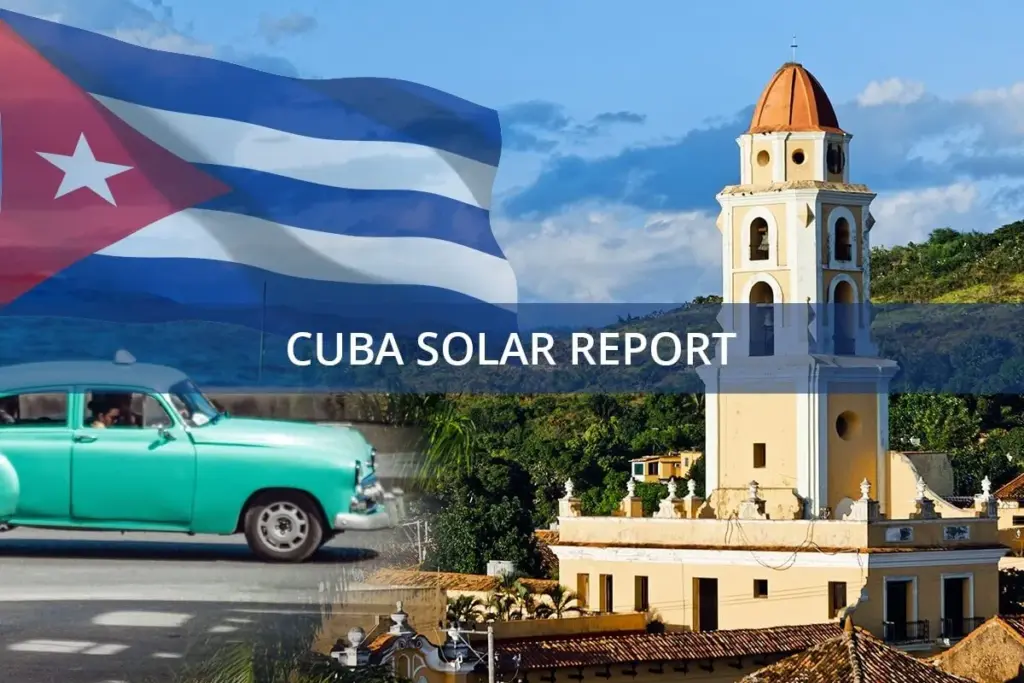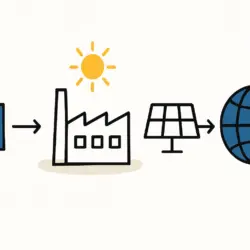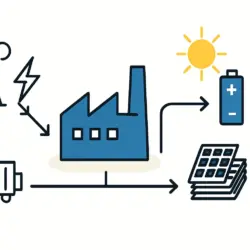Cuba plans to enhance its national electric system in 2025 by adding 1,000 MW of solar energy capacity. This initiative, announced at a government meeting, is part of broader efforts to transition from fossil fuels to renewable energy sources.
Heavy Investment in Cuba solar energy
Cuba’s government has revealed plans to significantly boost the island’s solar energy capacity by 2025. At a recent government meeting led by President Miguel Díaz-Canel, it was announced that 1,000 MW of solar energy will be added to Cuba’s national electric system next year. This move is part of a broader strategy to transition from fossil fuels to renewable energy sources and address the country’s ongoing energy crisis.
The announcement was reported by the official newspaper Granma and highlighted by the Latin Press. The meeting, which also included Prime Minister Manuel Marrero, focused on the need for Cuba to accelerate its shift away from fossil fuels. The goal is to increase the contribution of renewable energy to the national electric system, thereby reducing the country’s dependence on imported fuels. Cuba aims to increase the proportion of renewable energy in its electricity mix to 37% by 2030 (2,000 MW). You can read more about these goals in this Cuba Solar Panel Manufacturing Report.
The plan to add 1,000 MW of solar energy is a significant step towards achieving this goal. Solar energy is seen as a key component of Cuba’s renewable energy strategy, given the island’s abundant sunshine and the declining costs of solar technology. The government aims to harness these resources to improve the stability and sustainability of the national electric system.
Ongoing Energy Crisis in Cuba
Cuba’s energy crisis has been a major issue for the country in recent years. The national electric system has struggled to meet demand, resulting in frequent blackouts and power shortages. The government has attributed these problems to a combination of factors, including the aging infrastructure, the U.S. embargo, and the global rise in fuel prices.
In response to the crisis, the Cuban government has been working to diversify its energy sources and reduce its reliance on imported fuels. The addition of 1,000 MW of solar energy is expected to play a crucial role in these efforts. The Cuban government has also created incentives for foreign investment in the renewable energy sector.
The move towards renewable energy is also seen as a way to mitigate the impact of climate change. Cuba is particularly vulnerable to the effects of climate change, including rising sea levels and more frequent hurricanes. By increasing its use of renewable energy, the country hopes to reduce its carbon footprint and contribute to global efforts to combat climate change.
Broader Efforts to Combat Climate Change in Cuba
The government’s focus on solar energy is part of a broader effort to increase the share of renewables in Cuba’s energy mix. In addition to solar power, the country is also exploring other forms of renewable energy, including wind and biomass. By diversifying its energy sources, Cuba aims to create a more resilient and sustainable energy system.
The transition to renewable energy is expected to bring several benefits to the country. In addition to reducing its dependence on fossil fuels, it will also create new jobs and stimulate economic growth. The development of solar energy infrastructure will require significant investment, but the long-term benefits are expected to outweigh the costs. Understanding the power and logistics risks for a solar factory in Cuba is crucial for investors.
As Cuba moves forward with its plans to expand solar energy capacity, the international community will be watching closely. The island’s efforts to transition to renewable energy could serve as a model for other countries facing similar challenges. If successful, Cuba’s solar energy initiative could help to pave the way for a more sustainable and resilient energy system in the Caribbean region.
The government’s plan to add 1,000 MW of solar energy to the national electric system is a major step forward in the country’s efforts to transition to renewable energy. This initiative is expected to improve the stability of the electric system, reduce the country’s dependence on fossil fuels, and contribute to global efforts to combat climate change.



